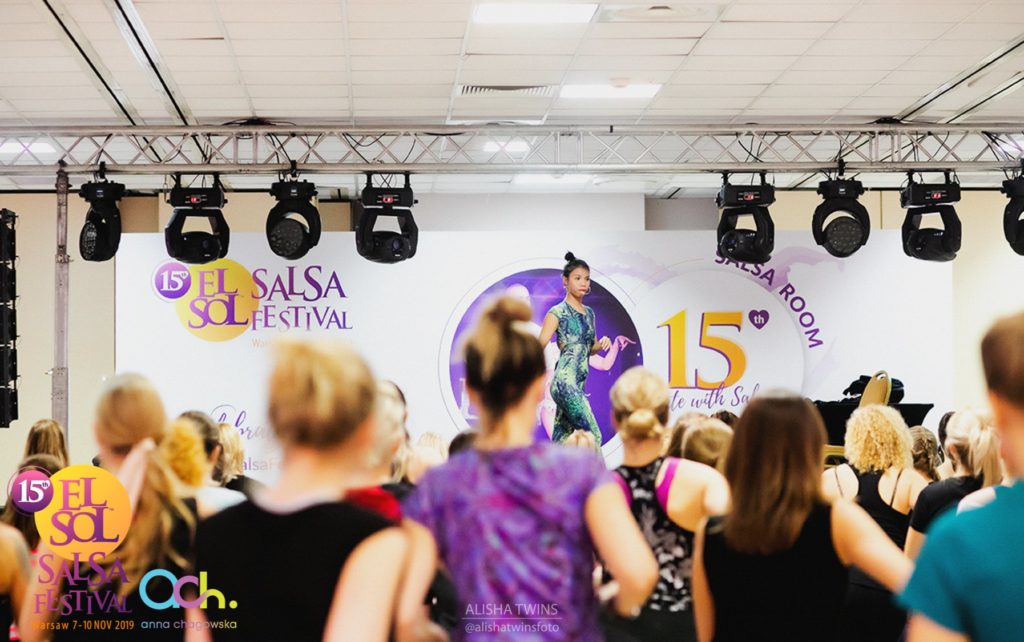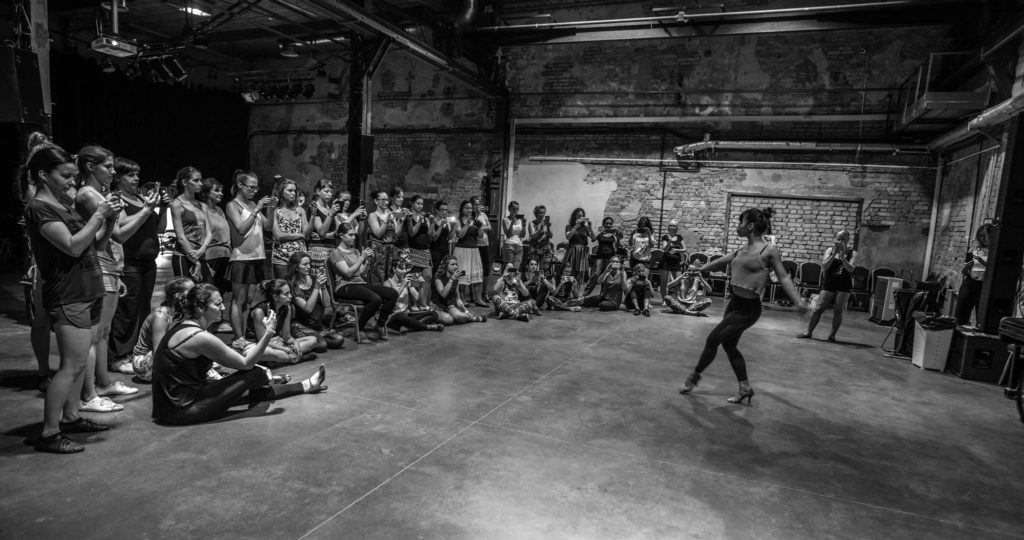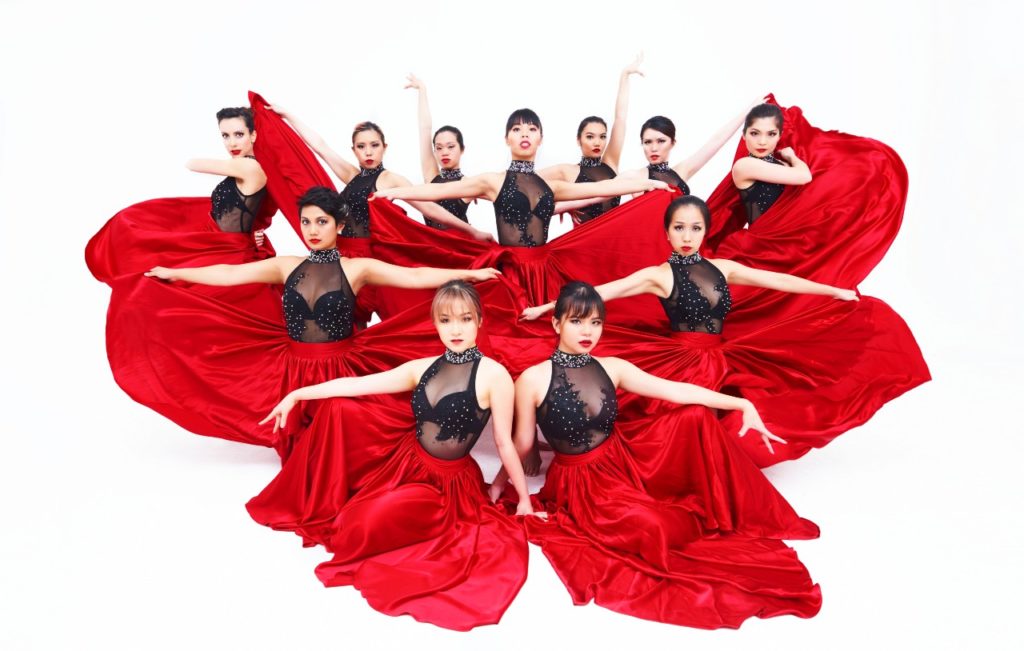Brenda Liew was 13 when she stepped into a party the likes of which she had never seen before.
Dancers’ eyes were locked passionately as they spun their bodies and swung their hips to Latin music blaring. The Bukit Merah dance studio, where Liew had practiced hip-hop, had been transformed into a ballroom of intense and alluring energy she yearned to be a part of.
It was on that very day that Liew decided to pick up Salsa and Bachata, two Latin dance forms with roots in Cuba and the Dominican Republic, and has since become one of very few Singaporeans to excel at the art.
“You can dance with anybody, it’s not choreographed but we know the structure of the dance,” Liew told Coconuts.
“I was so envious of the way they could dance and improvise with a partner and I knew nothing of that,” she added. “And so that was the day that I decided that I needed to take some of the classes.”
Liew is now 26 and runs dance centers in Taiwan and Vietnam while teaching three separate dance groups in Singapore. She’s also been traveling the world for Latin dance and, two weeks ago, became one of the first Asians to teach at the international Bachata Queens Festival held virtually due to the pandemic. Liew was named alongside other greats such as Sara Panero and La Alemana, who are also well known for the two Latin dance styles.
“The festival was great,” she said. The event saw more than 200 participants from across the globe.
“One of the great advantages for the students in the online festivals, on top of not needing to travel or pay for hotels, is also that the classes are recorded, so they are able to revisit them as many times as they want.”

Dirty dancing across Singapore and Europe
For someone born 10,000 miles from the birthplace of Latin dance, getting to where she is now was a big feat. Much of it has to do with the welcoming culture of Latin dance, where people of diverse backgrounds regularly gather for a night of “social dancing.” Nobody stands around and chitchat over cocktails and getting to know someone means dancing with them first.
Liew said she was “addicted” to social dancing and loved that “anybody from the world who knows the same dance” can come together. For centuries, Latin dance had been able to bring South American and Caribbean communities together. Other dance forms include Mambo, Merengue, Rumba, and Cha-cha-cha.
Ten years after that first party in Bukit Merah, Liew’s Latin dance career began to take off after she joined the Beijing Salsa Carnival in China’s capital in place of a dance partner who could not make it. That opportunity in 2014 helped her gain recognition and her schedule soon became packed with festivals, networking events, and endless dance workshops. Before she knew it, she was traveling the world and flying the Singaporean flag high across Europe.

“I would say that my career really started when I started to get noticed by festival organizers. The first trip that I ever did was to Beijing. I don’t take that as a score or something… But that kind of got me more exposed to the scene,” she said.
The Latin dance scene in Singapore was still a “baby” 10 years ago, with very few skilled dance instructors, according to Liew. Today, the city has held several well-known Latin festivals, including last year’s Singapore Latin Extravaganza, which drew over 1,000 attendees.
Depending on the organizers, festivals can go on for several days and normally comprise dance classes, concerts, and social dance parties that sometimes last till the wee hours of the morning. It is all part of the lifestyle, according to Liew.
“We also have a social Latin night, like parties every night,” she said. “You’re not only going for classes, but you’re also going for parties and in parties, you’re also socializing.”
“In festivals, so much of it goes into socializing as compared to a Hip Hop festival where everybody takes a workshop and you’re dancing by yourself. You don’t talk to people as much as you would in the Salsa and Bachata scene,” she added.
She was 20 when she finally saved up enough money to travel to Europe’s Latin dance festivals and, two years later, returned for her first paid European gig at the Berlin Salsa Congress in Germany in 2016, which was the longest continuously running salsa event in Europe. She had taught a class of several hundred participants and was named in a lineup headlined by other popular dancers Adolfo Indacochea and Super Mario.
But that experience did not come without challenges, Liew said, especially when she did not have a manager and had struggled with language barriers. Liew also considered herself a shy and introverted person.
“I was so young. At the age of 22 and going all the way to Europe to teach by yourself and having to stand your ground. It took me a lot of courage to even believe that I was standing beside somebody I looked up to 2 or 3 years ago,” Liew said, referring to top artists such as Tania Cannarsa and Terry & Cecile. “You’re the soloist, you’re the product. There’s no manager, and there’s no partner who can help you to talk. You’re 22 and you don’t know nothing about the world.”

Won’t stop dancing
Breaking into the American market was tougher for Liew as Spanish-speaking dancers were in higher demand. Expensive tickets from Singapore to the United States also made Liew a less favorable option for festival organizers, but that has not stopped the invitations from coming. Due to the long flights, Liew tends to decline the events, which sometimes clash with her monthly schedule of two to three festivals. But just after she decided to accept a recent invitation to join the Reno Latin Dance Festival in the state of Nevada, the pandemic happened and it has since been postponed to 2022.
“This time I thought it was already the time to go there in order to keep evolving in my career,” Liew said.
Amid thousands of Latin dancers out there, Liew believes she has something new to bring to the dance floor. Those who have witnessed Liew perform would know that she has a penchant for constantly evolving her style and making sure that her students can keep up.
“I really break down every movement well so everybody can understand,” she said, noting that her classes have been “popular and well-received” by both beginners and professionals.
“The way I choreograph any piece is largely got to do with the feel of each music, and also, I evolve my ‘style’ as I gain more experiences, maturity, and inspiration,” she added.
Just like in Dirty Dancing, you can’t put Baby – or in this case Liew – in a corner. But until the COVID-19 pandemic ends, Liew is stuck in Singapore for now.
Other stories:
Singapore nightclub Zouk turns into pop-up movie theatre ‘Cinema Club’
Go glamping when Malay Heritage Center opens camp site in December
Singapore moviegoers must use COVID app, tracking device before entering





Reader Interactions